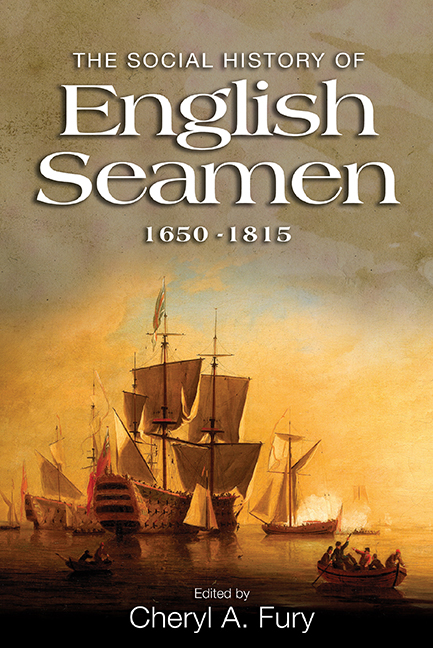Book contents
- Frontmatter
- Dedication
- Epigraph
- Contents
- List of illustrations
- List of contributors
- List of abbreviations
- Introduction
- 1 The Development of Sea Power, 1649–1815
- 2 Naval Seamen, 1650–1700
- 3 Officers and Men of the Navy, 1660–1815
- 4 The Impact of Warfare on Naval Wives and Women
- 5 Officers, Shipboard Boys and Courts Martial for Sodomy and Indecency in the Georgian Navy
- 6 Health Provision in the Royal Navy, 1650–1815
- 7 The Origins and Careers of English Merchant Seamen in the Late Seventeenth and Early Eighteenth Centuries
- 8 Private Enterprise, Public Policy and the Development of Britain's Seafaring Workforce, 1650–1815
- 9 Jack Tar's Food: Masculine Self-fashioning in the Age of Sail
- 10 Pirates, Privateers and Buccaneers: The Changing Face of English Piracy from the 1650s to the 1720s
- Conclusion
- Bibliography
- Index
3 - Officers and Men of the Navy, 1660–1815
Published online by Cambridge University Press: 11 August 2017
- Frontmatter
- Dedication
- Epigraph
- Contents
- List of illustrations
- List of contributors
- List of abbreviations
- Introduction
- 1 The Development of Sea Power, 1649–1815
- 2 Naval Seamen, 1650–1700
- 3 Officers and Men of the Navy, 1660–1815
- 4 The Impact of Warfare on Naval Wives and Women
- 5 Officers, Shipboard Boys and Courts Martial for Sodomy and Indecency in the Georgian Navy
- 6 Health Provision in the Royal Navy, 1650–1815
- 7 The Origins and Careers of English Merchant Seamen in the Late Seventeenth and Early Eighteenth Centuries
- 8 Private Enterprise, Public Policy and the Development of Britain's Seafaring Workforce, 1650–1815
- 9 Jack Tar's Food: Masculine Self-fashioning in the Age of Sail
- 10 Pirates, Privateers and Buccaneers: The Changing Face of English Piracy from the 1650s to the 1720s
- Conclusion
- Bibliography
- Index
Summary
The Navy of the English Commonwealth and Protectorate did as much as the New Model Army to crush the Royalist cause, and a good deal more to establish the international power and prestige of the English Republic. Even after Cromwell's 1653 coup d’état created the quasi-monarchy of the Protectorate, the Navy's officers remained with few exceptions those selected by the Commonwealth for their loyalty to republicanism and religious radicalism. Yet the restored royal government of Charles II embraced the Navy which it had inherited with unfeigned enthusiasm. Forgetting all that it had done to blight their own cause, the Royalists remembered only how it had fulfilled the promise of the Elizabethan seafarers and restored their country's status as a great power after two hundred years of humiliation.
This, however, did not eliminate the practical difficulty faced by Charles II and his brother James Duke of York, the Lord High Admiral, in dealing with the Navy. Precisely because it represented the wealth, safety and strength of the kingdom, it demanded officers of proven loyalty and ability – but the few available Royalist sea officers were mostly former privateer commanders with no experience of handling squadrons, while those who had learned the business of naval command in the hard school of the Dutch and Spanish wars were republicans and sectaries. The choice was summed up by the catch-phrase ‘Gentlemen or Tarpaulins’ – ‘tarpaulins’ meaning professional merchant seamen, named from the oiled canvas from which they made their foul-weather coats. Charles and James handled this dilemma with skill. A large proportion of the former officers were won to the new regime, and trusted with high command. With them were mixed former Royalist sea commanders and new, post-Restoration entries who were themselves of diverse social origins. Charles was well aware from the beginning of the importance of the Navy to the survival of his fragile throne, and in 1661 instituted the new position of ‘volunteer per order’ or ‘king's letter boy’, ‘to give encouragement to such young gentlemen as are willing to apply themselves to the learning of navigation, and fitting themselves for the service of the sea’.
- Type
- Chapter
- Information
- The Social History of English Seamen, 1650-1815 , pp. 51 - 70Publisher: Boydell & BrewerPrint publication year: 2017



